The China Cultural Center in Belgrade stands as a testament to the enduring friendship and cultural exchange between China and Serbia. Officially established by the Chinese government, this center serves as a vital channel for communication and cultural diplomacy, enriching the lives of both the Chinese and Serbian people.
Table of Contents
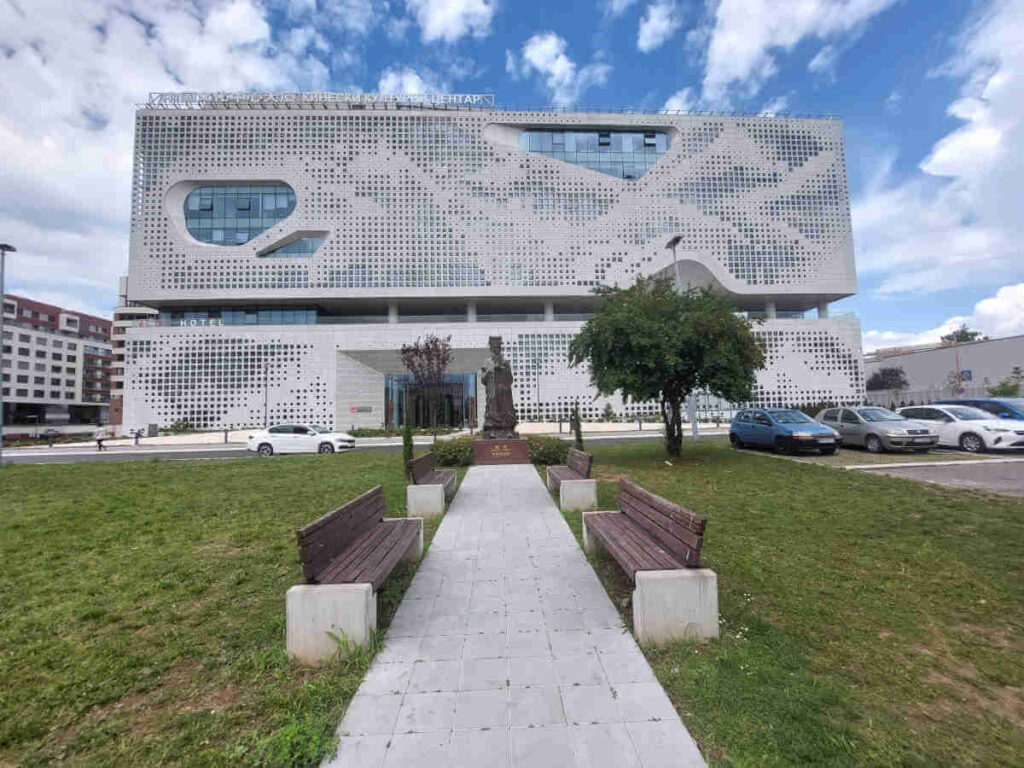
Location: The Site of Bombed Chinese Embassy
Located in the Trešnjinog Cveta Street in Novi Beograd, the China Cultural Center is built on the site where the Chinese Embassy once stood before it was tragically destroyed during the NATO bombing in 1999. The bombing resulted in the loss of three Chinese journalists and injuries to twenty others.
The United States apologized at the time, acknowledging the embassy bombing as a mistake resulting from faulty intelligence. The incident sparked anger in China, leading to protests at U.S. diplomatic facilities and fueling anti-American sentiments. Speculation arose that the attack was intentional rather than accidental. Mistrust stemming from the incident has persisted to this day.
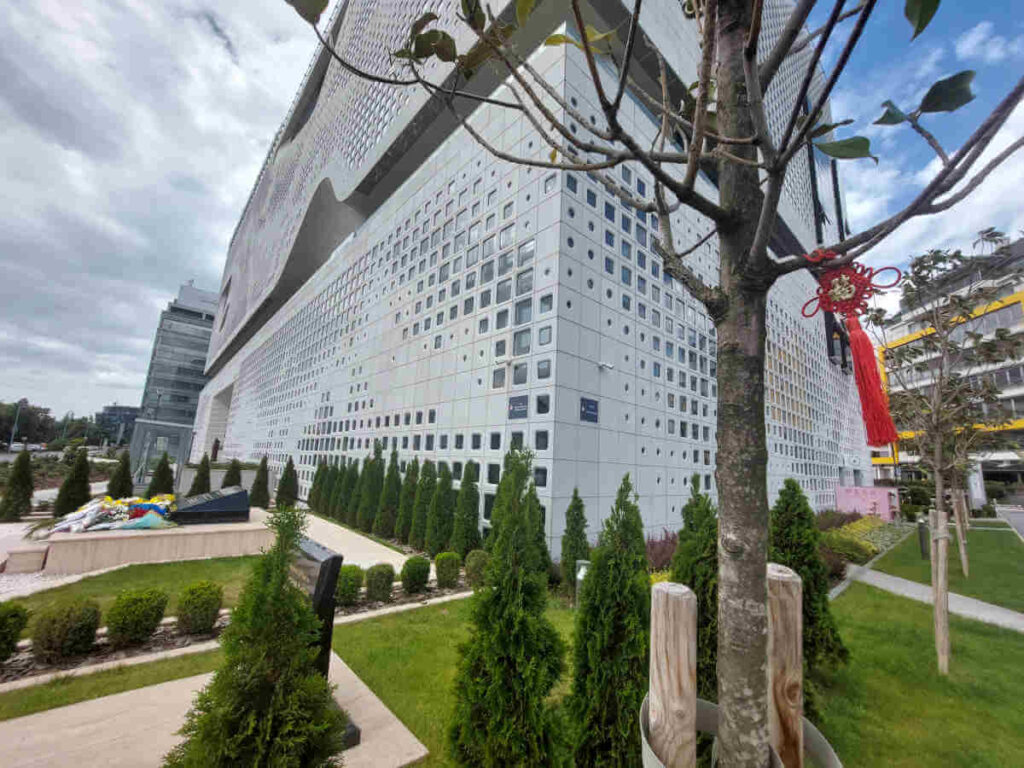
During his most recent visit to Belgrade in May 2024, Chinese President Xi Jinping visited the site to commemorate the 25th anniversary of the tragic event.
Construction
In 2011, the then Chinese Ambassador to Serbia, Wei Jinghua, announced the construction of the cultural center as a tribute to the lives lost at the bombed embassy. The announcement was accompanied by a wreath-laying ceremony at a commemorative plaque honoring the victims.
In June 2016, Chinese President Xi Jinping and Serbian President Tomislav Nikolić laid the foundation stone for the China Cultural Center. The construction was completed in 2020.
This facility spans two floors and covers an area of 6,000 square meters. The exterior design is a perfect blend of traditional Chinese painting and modern architectural art. Inside, the Chinese-style furniture was transported all the way from China using the China-Europe Railway Express.
The China Cultural Center Complex
The China Cultural Center, the first of its kind in the Balkans and one of the largest in Europe, is an integral part of a multifunctional complex.
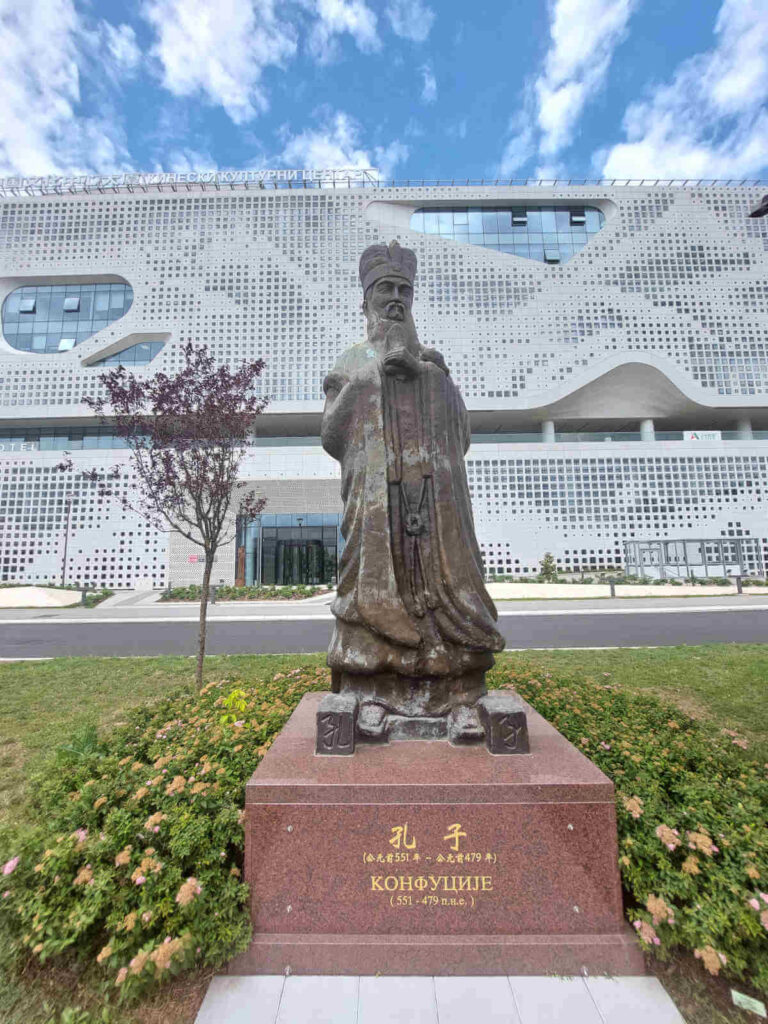
In front of the building lies a well-maintained small park, featuring four benches and a statue of the Chinese philosopher Confucius (c. 551 – c. 479 BCE). On the right side, there is the Friendship Square of Serbia and China.
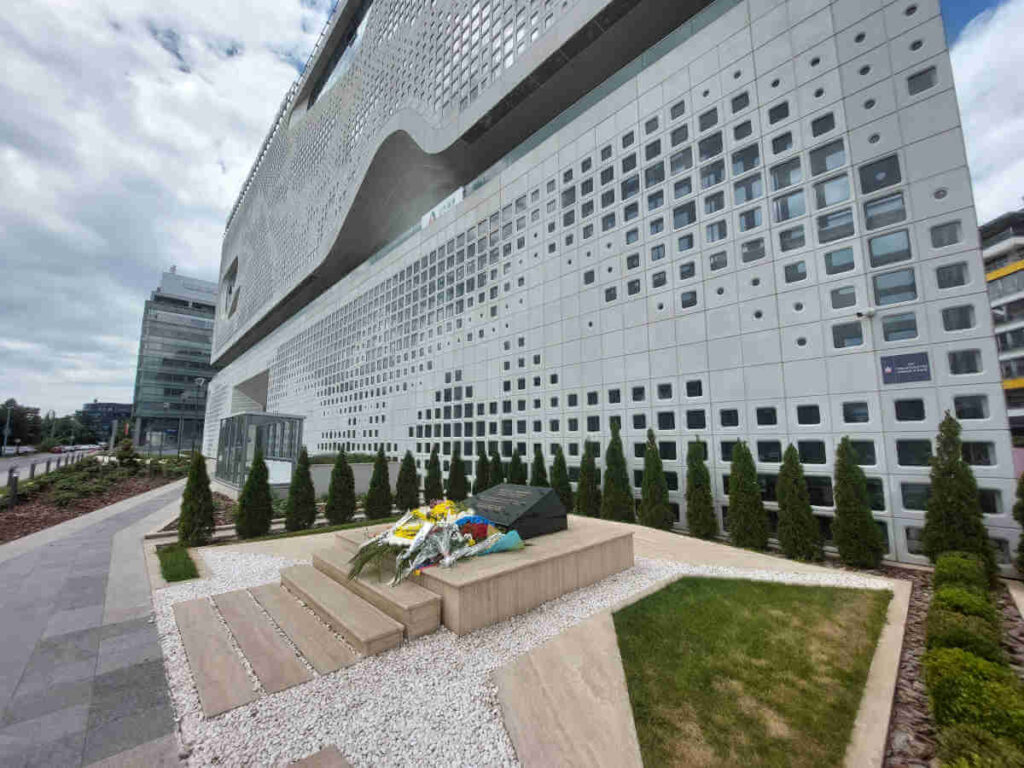
The square features two black marble plaques commemorating the Chinese victims of the 1999 NATO bombing.
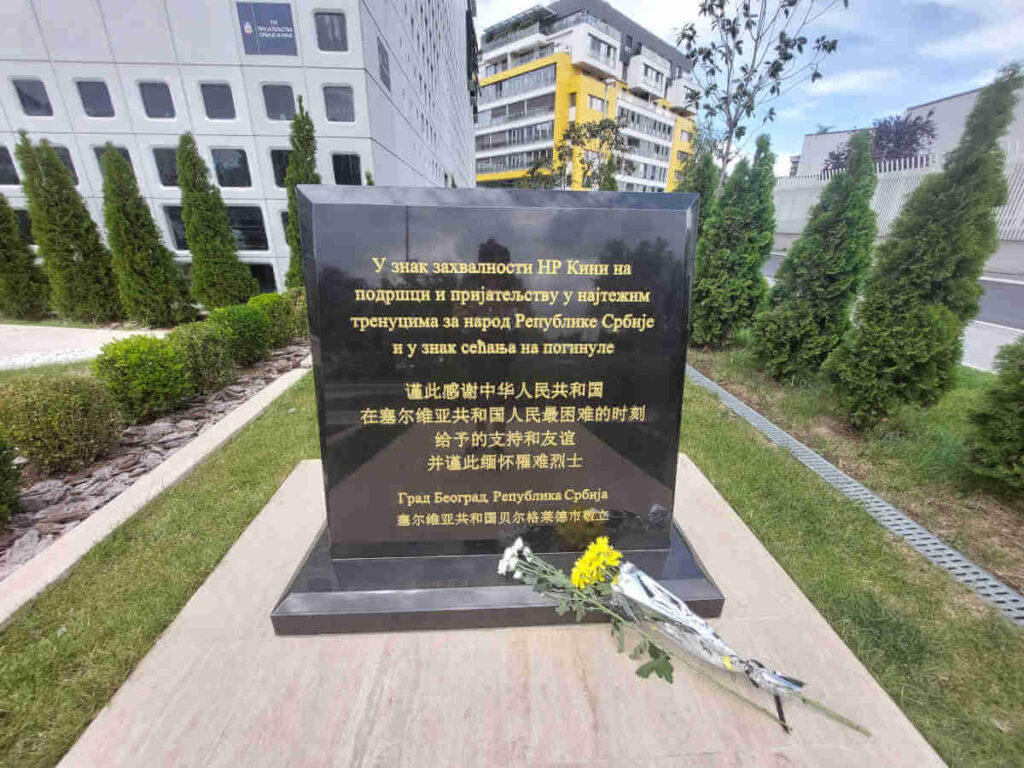
One plaque, provided by the City of Belgrade and the Republic of Serbia, reads: “In gratitude to the People’s Republic of China for their support and friendship during the most difficult times for the people of the Republic of Serbia and in memory of the victims.”
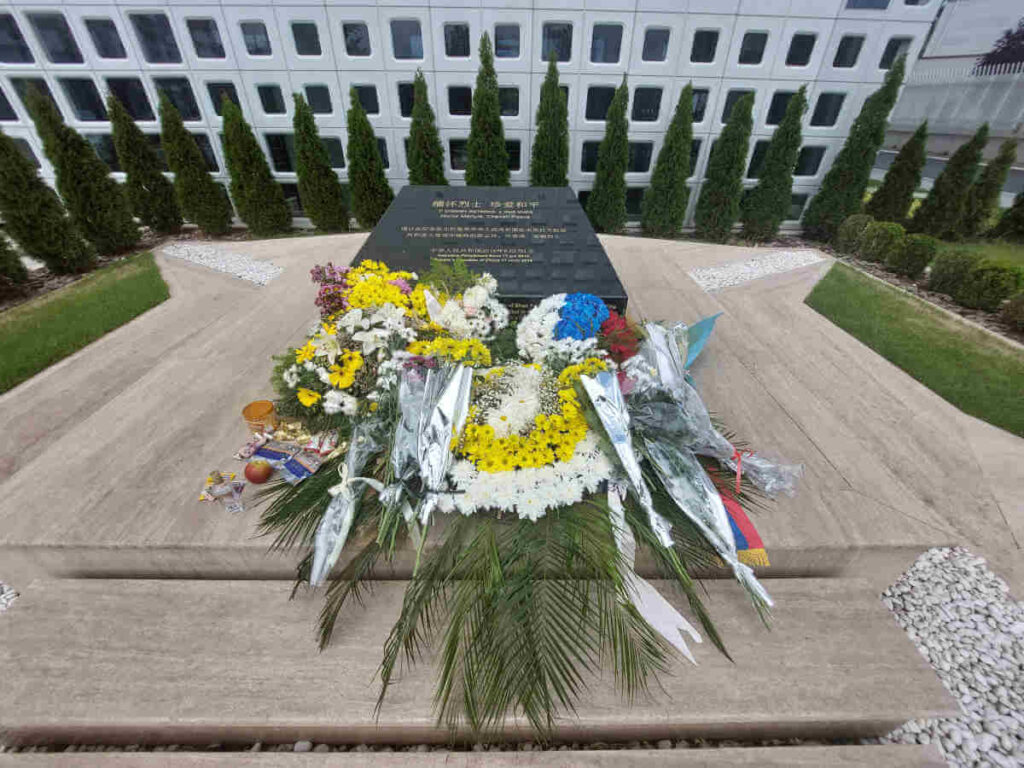
The other plaque was placed by the People’s Republic of China on June 17, 2016, and it reads: “Honor martyrs, cherish peace.” Both plaques are surrounded by fresh flowers, as people pay homage to the victims at the mourning site, including the ever-growing number of Chinese tourists in Serbia.
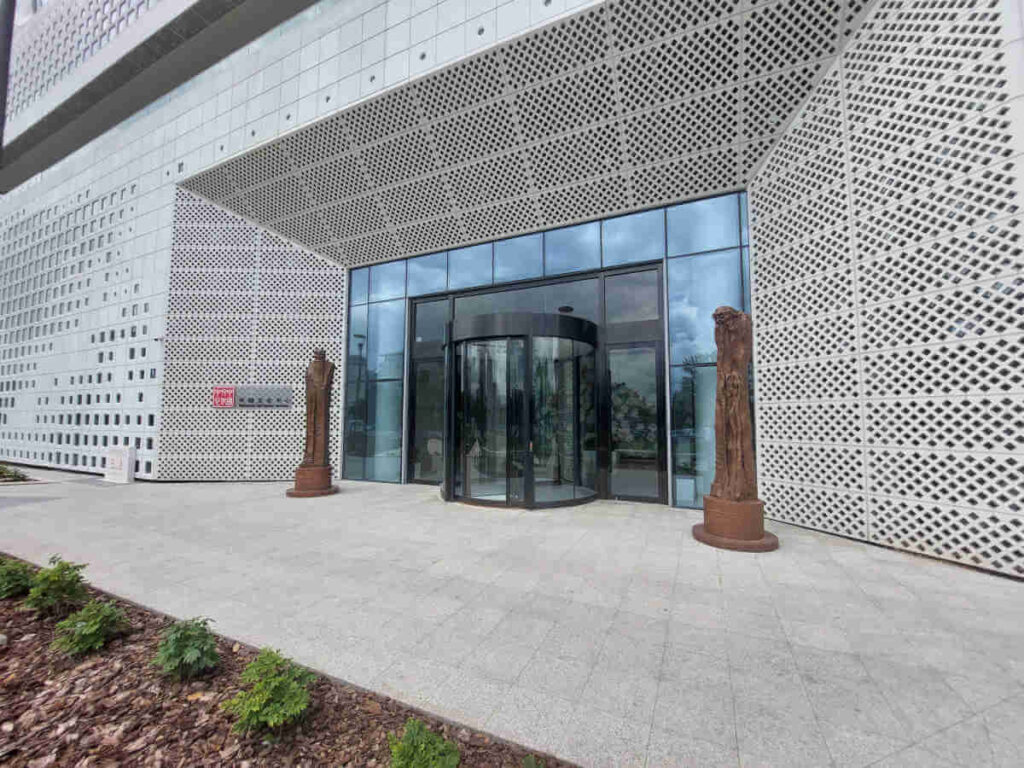
The entrance to the China Cultural Center is flanked by two imposing statues of Laozi and Confucius.
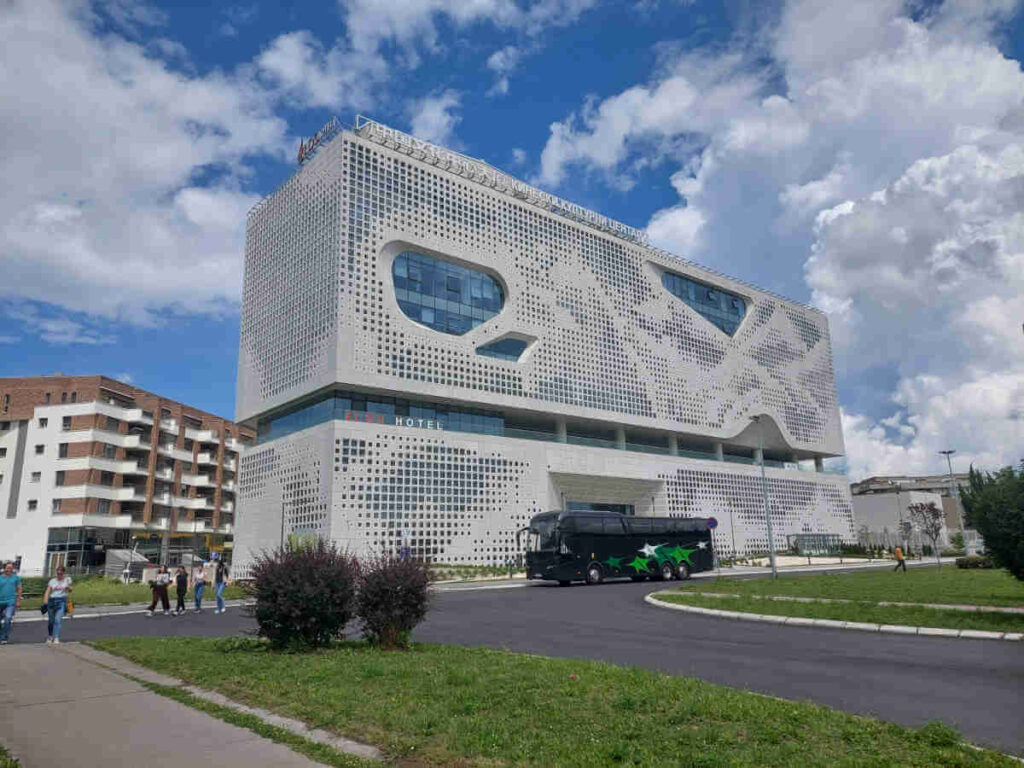
The China Cultural Center building also features the LDS Hotel. In keeping with the Cultural Center, the design and spirit of the LDS Hotel reflect the ancient philosophy of Daoism through traditional landscape paintings of “mountains and waters,” symbolizing balance and harmony.
Carefully selected details that reflect Chinese tradition, such as embroideries, carpets, walls, and decorations, combined with modern design, make the LDS Hotel a unique place to stay, whether traveling for business or leisure.
Chinese Language Classes, Calligraphy, Tai Chi, and More
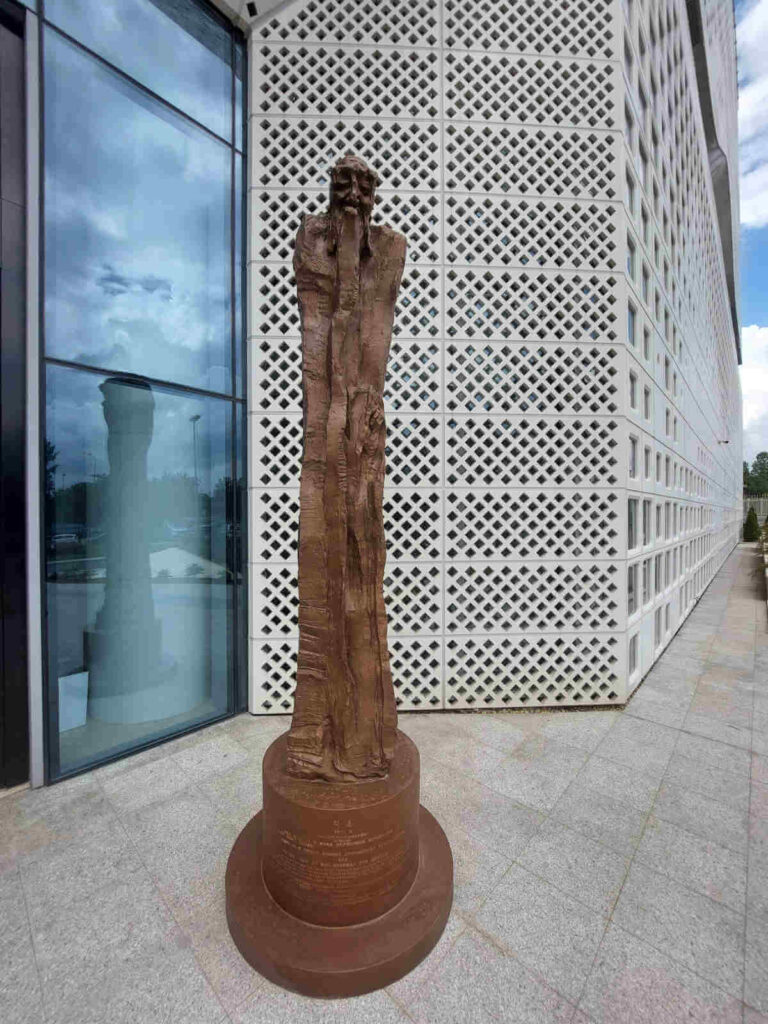
The China Cultural Center provides classes in Chinese language, traditional Chinese musical instruments, calligraphy, and tai chi. Soon, cooking and tea ceremony courses will be added to the curriculum. With a well-equipped library and a 200-seat auditorium for concerts and events, the center serves as a dynamic hub for cultural exchange.
Conclusion
Great minds are cultivated through interaction with others, and great civilizations thrive on mutual learning. The China Cultural Center in Novi Beograd is not merely a beautiful modern white building; it is an active platform for local Serbians to explore Chinese culture, a link between the two nations, and a foundation for fostering bilateral friendship.

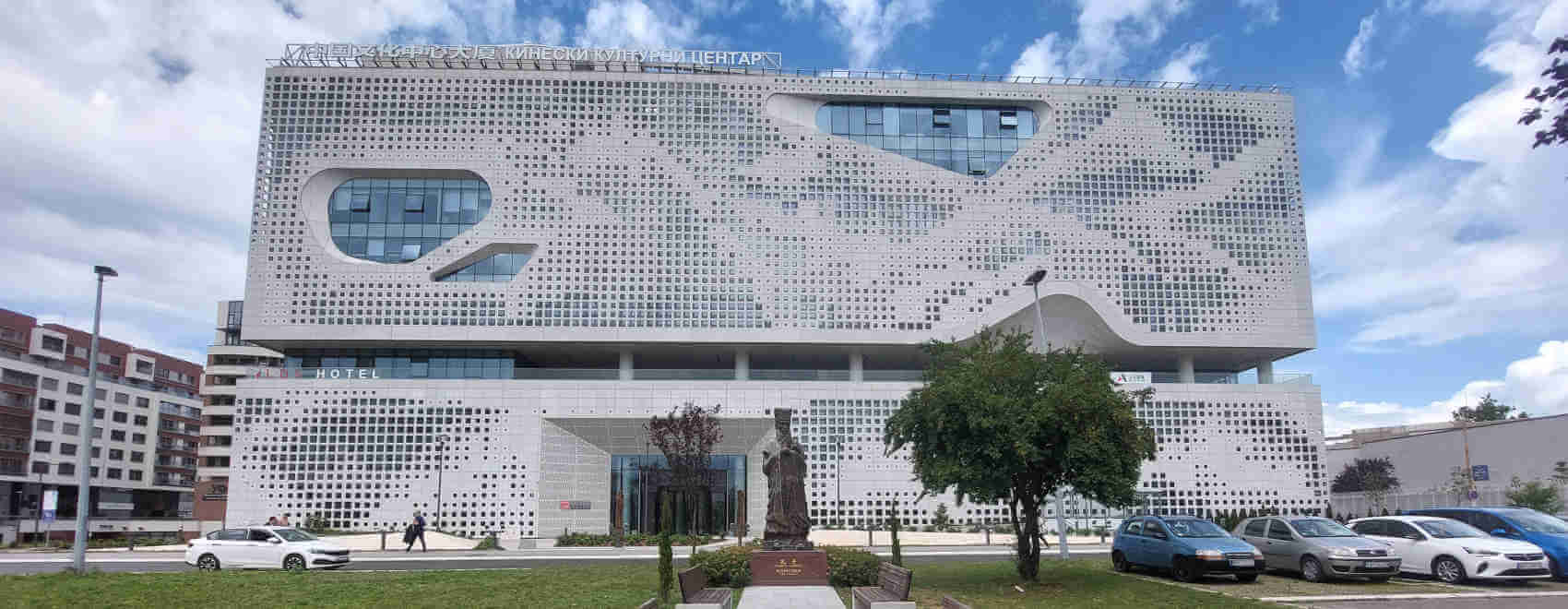
Leave a Reply